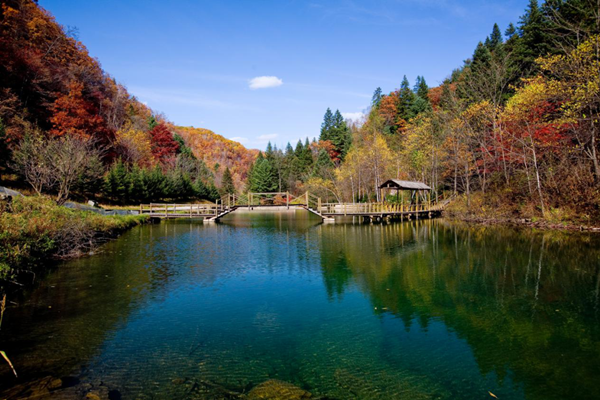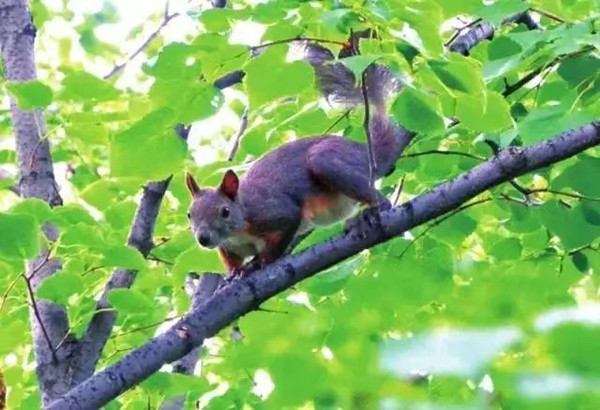
A tranquil moment is captured in Baishan city. [Photo/Baishan Release]
Baishan city in Northeast China's Jilin province has been making great strides in protecting its biodiversity – and the results have been impressive, according to local media reports.
The city has designated nine nature reserves at the provincial level or above, including five national nature reserves and four provincial nature reserves.
Baishan has reportedly ensured the safety of its ecological system and its environment by continuously strengthening the management of nature reserves and improving the management and protection capabilities of key protected features of these areas.

A squirrel loiters among lush greenery in Baishan. [Photo/Baishan Release]
Furthermore, it has strengthened the protection of wildlife habitats, promoted the construction of biological corridors and protected areas, as well as vigorously implemented ecological protection and restoration projects.
In the city, 51 mines have completed their eco-friendly restoration and management and 13 water quality improvement projects have been completed.
The city needed to renovate 160 sewage outlets, work on which has all been done.
A total of 1,009 problems involving environmental encroachment and damage to the ecological system were identified in the city and all have been rectified.
On the theme of the annual International Biodiversity Day, Baishan vigorously publicized laws and regulations about biodiversity protection and disseminated scientific knowledge on biodiversity through lectures, the distribution of publicity materials and other activities.
Currently, the forest coverage rate there is estimated to have reached 84.5 percent.
Around 60 percent of the Changbai Mountains Nature Reserve is in the area administered by Baishan city and it is the hometown of the "three treasures" of Northeast China – ginseng, mink fur and antler horns.







